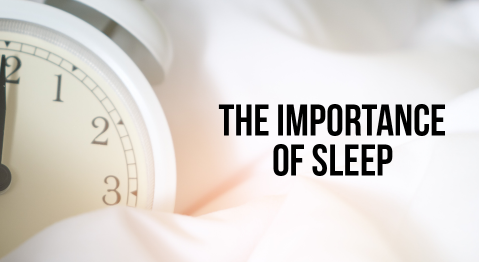[vc_row][vc_column][vc_column_text]By Karisa Son, NP-C
Sleep plays a vital role in learning, forming memories, resting the body, repairing tissues and cells, and supporting the immune system.
Lack of sleep can affect the brain, contributing to lack of focus, memory problems, increased irritability, depression, or anxiety.
Sleep deprivation can also be detrimental to physical health by increasing risk for high blood pressure, heart disease, stroke, obesity, and type 2 diabetes.
As the body ages, less time is spent in the deepest stage of sleep, which leads to less satisfactory sleep and lessened feeling of restfulness.
Good sleep hygiene habits are important to getting a good night’s sleep including:
- For adults and older adults, it is important to get 7-8 hours of sleep per day.
- Increase exposure to bright light during the day, preferably natural sunlight, which promotes balanced circadian rhythm.
- Stick to a regular sleep and wake schedule, even on weekends.
- Use the bedroom only for sleeping.
- Avoid naps in the late afternoon and evening and avoid naps longer than 30 minutes.
- Avoid exercise within 3 hours of bedtime.
- Avoid bright lights and screen time (TV, smartphone, laptop) before bedtime.
- Avoid eating large meals and limit excessive fluid intake close to bedtime.
- Avoid caffeine intake past morning time.
- Avoid using alcohol as a sleep aid. While it may cause initial drowsiness, it reduces sleep quality by shortening the amount of time spent in the most restorative “REM” stage of sleep.
- Develop relaxing habits before bedtime such as reading a book or listening to calm music or white noise.
If you still have trouble falling asleep and or staying asleep, or you have questions regarding over-the-counter and prescription sleep aids, please consult a health care professional.
Sources:
https://medlineplus.gov/healthysleep.html
https://www.nia.nih.gov/health/good-nights-sleep
https://medlineplus.gov/ency/article/004018.htm
https://www.webmd.com/sleep-disorders/news/20130118/alcohol-sleep#1
https://www.healthline.com/nutrition/17-tips-to-sleep-better#section18[/vc_column_text][/vc_column][/vc_row]


